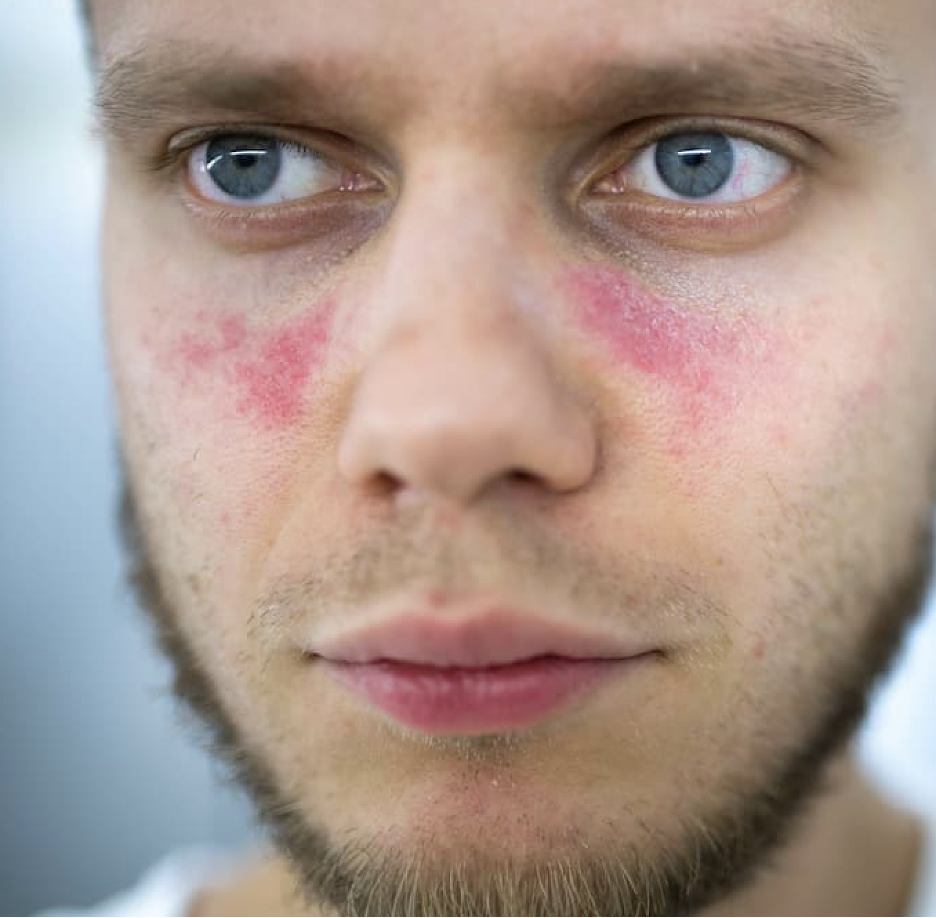Article
Belimumab: Groundbreaker in Lupus
Belimumab has been a ground-breaking therapy for patients with systemic lupus erythematosus. In this op-ed, Paul Sufka, M.D., reviews recent studies on belimumab which could lead to new uses.
The Rheumatology Journal Club on Twitter recently discussed real-world observations of belimumab (Benlysta) usage and outcomes for the treatment of systemic lupus erythematosus in the United States. We discussed the recent article by Collins, C., et al. entitled, “Response to belimumab among patients with systemic lupus erythematosus in clinical practice settings: 24-month results from the OBSErve study in the USA.”
Belimumab is an exciting medication in the world of rheumatology. When it was approved in March 2011, it was the first medication to receive FDA approval for systemic lupus erythematosus (SLE) in 56 years. The last medications approved for SLE were hydroxychloroquine and corticosteroids in 1955.
The pathophysiology of SLE involves many factors, which include overproduction of autoimmune B-cells and autoantibody production. Belimumab reduces SLE activity as a monoclonal antibody that inhibits B lymphocyte stimulator (BLyS), causing decreased B-cell survival and reduced production of autoantibodies.
The FDA label for belimumab states that it is approved for “the treatment of adult patients with active, autoantibody-positive, systemic lupus erythematosus who are receiving standard therapy,” but cautions that it “has not been evaluated in patients with severe active lupus nephritis or severe active central nervous system lupus.”[[{"type":"media","view_mode":"media_crop","fid":"46047","attributes":{"alt":"Paul Sufka, M.D.","class":"media-image media-image-right","id":"media_crop_8976737321354","media_crop_h":"0","media_crop_image_style":"-1","media_crop_instance":"5313","media_crop_rotate":"0","media_crop_scale_h":"0","media_crop_scale_w":"0","media_crop_w":"0","media_crop_x":"0","media_crop_y":"0","style":"font-size: 13.008px; line-height: 1.538em; float: right;","title":"Paul Sufka, M.D.","typeof":"foaf:Image"}}]]
The initial phase III trials of belimumab for SLE, the BLISS-52and BLISS-76 trials, suggested that the medication was only marginally effective, but was well tolerated. Patients with severe manifestations of SLE, such as lupus nephritis or CNS involvement, were excluded from initial trials.
However, results from patients selected for clinical trials are often different from real-world observations, and as Dr. Collins pointed out during the #RheumJC discussion, in the controlled phase 3 trials, there were no steroid taper requirements, thus not really reflective of how we do medicine.
One positive finding from the OBSErve study (evaluation Of use of Belimumab in clinical practice SEttings in the US; GSK Study: BLM117295) was that belimumab did allow patients to reduce prednisone usage significantly, with 77% of patients on a mean dose of 19.9 mg/day at baseline, improving to 8.4 mg/day at month 6 and 6.1 mg/day at month 24. This is important as corticosteroid use is associated with numerous adverse events and cumulatively results in organ damage. As Dr. Collins noted, even though "steroid sparing" (remains) an elusive endpoint to achieve in a trial, it remains one of our greatest desires for any med.
Another positive finding in OBSErve was that belimumab was again shown to be well tolerated. Hardly anyone stopped belimumab because of infections or side effects - this is a plus, Dr. Collins noted.
Overall, the OBSErve study helped to secure belimumab as a useful medication in the rheumatologists armamentarium for treatment of SLE. In the future, we hope to learn more about the best ways to use belimumab, such as effects on patients with more severe disease or whether it might be useful to combine with other biologics.
Paul Sufka, M.D., is a board certified rheumatologist with HealthPartners who works at the Specialty Center and Regions Hospital in St.Paul, Minn., and the RiverWay Clinic in Anoka, Minn. He is one of the co-founders of both Rheumatology Podcast and the Rheumatology Journal Club on Twitter at #RheumJC.
References:
Rheumatology Journal Club, http://rheumjc.com/
C E Collins, M Dall'Era, et al.
"Response to belimumab among patients with systemic lupus erythematosus in clinical practice settings: 24-month results from the OBSErve study in the USA,"
Lupus Science and Medicine, BMJ. Lupus Sci Med 2016;3:e000118 doi:10.1136/lupus-2015-000118 GSK Prescribing Information,
Benlysta for injection
. Sandra V Navarra, MD, Renato M Guzmán, et al.
"Efficacy and safety of belimumab in patients with active systemic lupus erythematosus: a randomised, placebo-controlled, phase 3 trial,"
The Lancet. Published Online: 07 February 2011. DOI: http://dx.doi.org/10.1016/S0140-6736(10)61354-2 Richard Furie1, Michelle Petri, et al.
"A phase III, randomized, placebo-controlled study of belimumab, a monoclonal antibody that inhibits B lymphocyte stimulator, in patients with systemic lupus erythematosus,"
Arthritis and Rheumatology. Article first published online: 29 NOV 2011 DOI: 10.1002/art.30613
FDA Briefing Package
: Overview of the FDA background materials for BLA# 125370, Benlysta (belimumab). October 19, 2010





